Mobileye
Latest
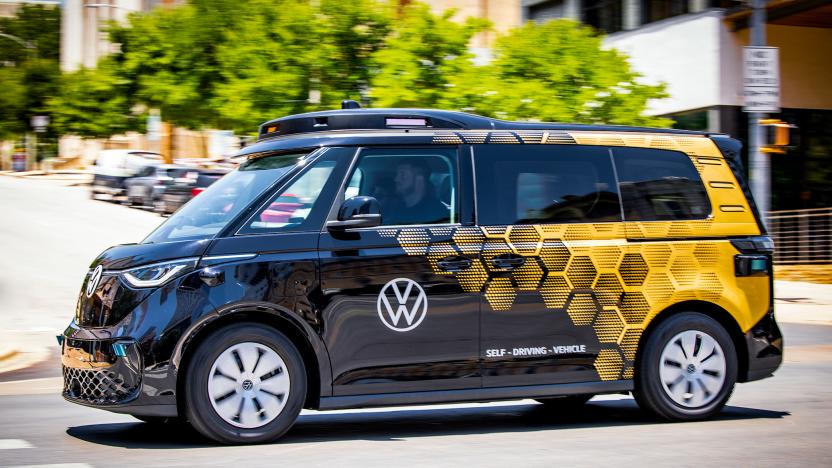
VW will start testing self-driving cars in the US this month
VW is testing self-driving electric vans in Austin, and hopes to offer robotaxi service by 2026.
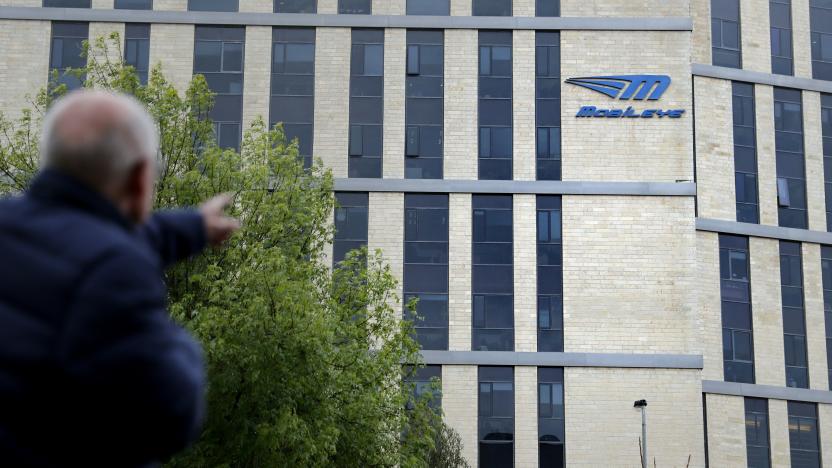
Intel-owned autonomous driving tech company Mobileye files for an IPO
Intel previously said that it's using some of the funds it earns from the IPO to build new chip factories.
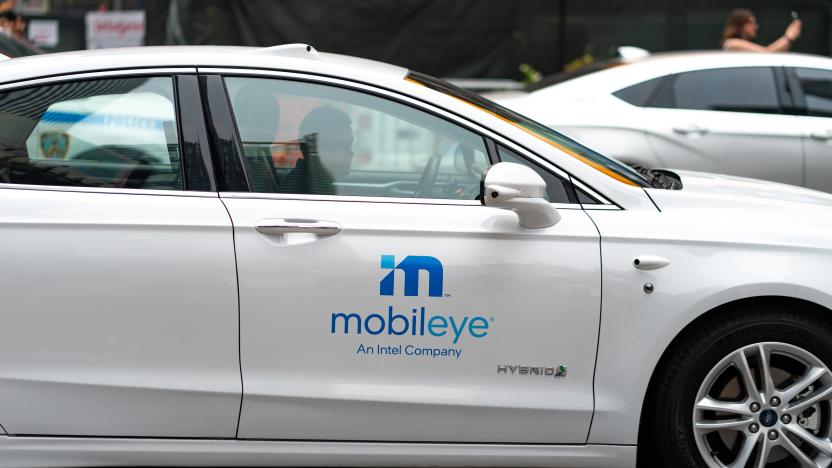
Intel's Mobileye unveils a chip that could bring self-driving cars to the masses
Intel's Mobileye has designed a chip that could help bring self-driving cars into the mainstream.

Intel's Mobileye will power driverless 'last-mile' deliveries starting in 2023
Intel's self-driving technology company Mobileye has just announced a partnership with Udelv to build a fleet of autonomous delivery vehicles.

After Math: Twitter's very bad breach
Let’s take a look at Twitter’s worst Wednesday in living memory, as well as some stellar game sale numbers amid the COVID-19 shutdown and a high-end video camera with more resolution than even James Cameron can handle. Sisyphus would have had an easier time getting over hump day than Twitter did last Wednesday.
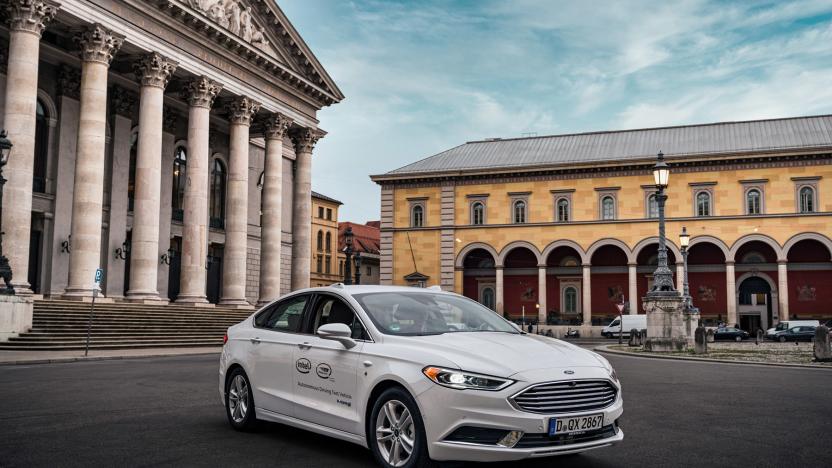
Intel's Mobileye will test self-driving cars at up to 80 MPH in Germany
Intel’s Mobileye self-driving division has received regulatory approval to test its vehicles on German roads, Intel announced.

Intel buys transit app maker Moovit to advance its mobility ambitions
Intel acquired transit app company Moovit for nearly $900 million.

Intel's Mobileye will help China's public transport go autonomous
Mobileye is making a big push for autonomous driving in China, albeit not in the way you might expect. The Intel-owned company is "exploring" two major deals to use its self-driving tech in the country, most notably for mass transit. It's hoping to team up with Beijing Public Transport Corporation and Beijing Beytai to roll out driverless mass transit services in China, including the development of Level 4 (fully autonomous in specific conditions) tech and the creation of an industry standard. If everything goes forward, it could be ready in 2022.
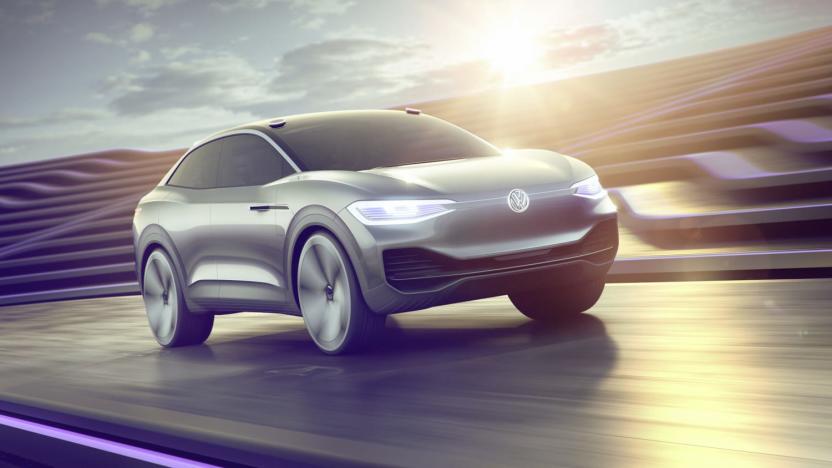
Volkswagen and Mobileye team up for an autonomous ride-hailing service
Intel-owned company Mobileye has teamed up with Volkswagen to launch an autonomous EV ride-hailing service in its native country of Israel. Their joint venture called "New Mobility" will use electric Volkswagen vehicles powered by Mobileye's Level 4 autonomous driving system "AV Kit." A third partner, Israeli VW distributor Champion Motors, will manage the service's fleet and logistics. The Israeli government has promised to provide the venture with the regulatory and infrastructure support it needs, so the companies might not have to worry about dealing with red tape and bureaucracy.

Intel is making a big bet on autonomous driving in 2018
Now that Intel's MobilEye acquisition is complete, the tech titan is ready to get the ball rolling. In fact, we might see semi-autonomous vehicles powered by MobilEye's Road Experiment Management (REM) system as soon as this year. Intel has signed contracts with 11 carmakers, which will use the Level 2+ autonomous driving tech MobilEye developed, on vehicles slated to be released throughout 2018 and 2019. This particular technology will add semi-autonomous features, such as simple braking, steering and acceleration, to cars. It's worth noting, though, that REM was created to make fully autonomous cars possible, and that's still Intel's ultimate goal.
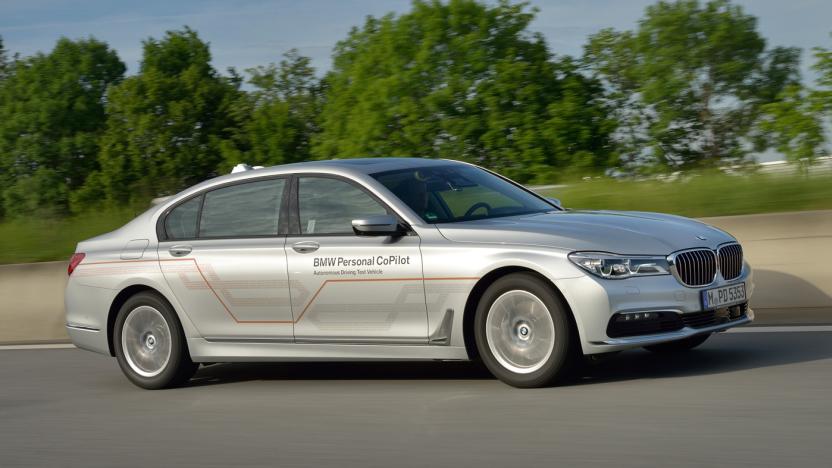
You can’t buy a self-driving BMW until 2021 (and that’s a good thing)
At this point, if you're an automaker and you're not talking about autonomous cars, you might want to take a long, hard look at your product road map. During a briefing at its Mountain View research campus, BMW talked about how it plans to bring a Level 3 (autonomous driving in very specific circumstances where the driver should be ready to take over control) car to consumers in 2021 and deliver Level 4 and 5 ride-hail vehicles to urban pilot programs the same year. Right now, a lot of that strategy hinges on its partners while the automaker maintains the BMW brand.
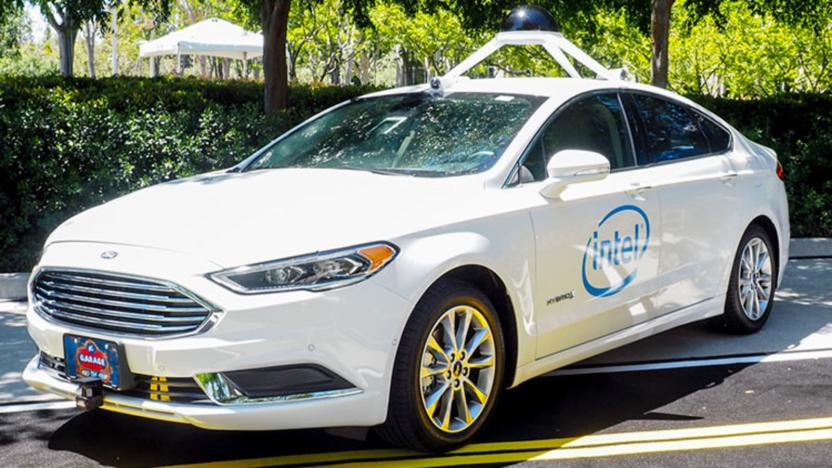
Intel proposes a mathematical formula for self-driving car safety
As autonomous vehicles become a part of the landscape, there are more questions than ever about their safety, and how to determine responsibility when they get in an accident. With so many companies (Alphabet, Uber, GM, Tesla and Ford -- just to name a few) working on different technology, there's also a question of how to establish standards on any level. Now, Amnon Shashua, the CEO of (recently acquired by Intel) Mobileye is proposing a model called Responsibility Sensitive Safety to "prove" the safety of autonomous vehicles.

CNBC: Tesla is working on its own AI chip with help from AMD (update: apparently not)
It's no secret that Tesla always wanted to develop an in-house chip to handle its cars' autonomous functions. Well, according to CNBC, the EV-maker is close to reaching that goal -- with help from AMD. The company is reportedly building its chip on top of AMD technology and is even working with AMD spin-off and chip fabricator GlobalFoundries to make its vision a reality. It also hired Jim Keller, who previously worked with AMD and Apple, to lead its chip division. In fact, they're far enough in the development process to be able to make samples of the processor's first implementation, and Tesla has already begun testing them.
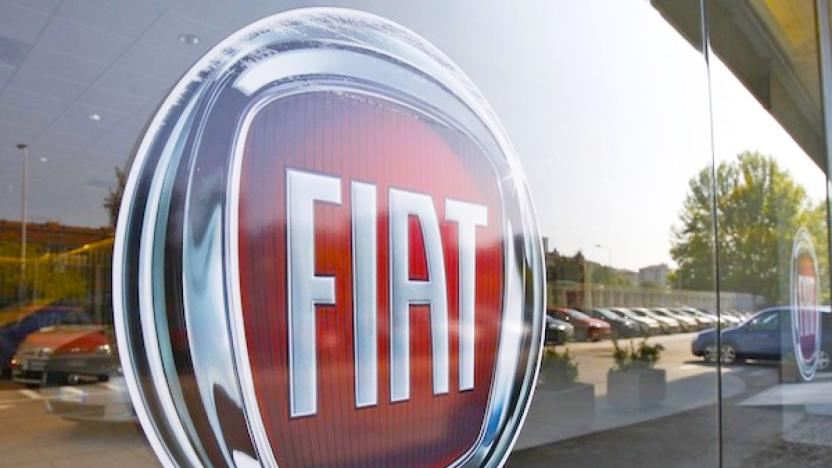
Intel’s self-driving supergroup brings Fiat Chrysler into the fold
Intel's self-driving supergroup has added another member to the team: Fiat Chrysler Automobiles (FCA). The partnership, which already includes BMW, Intel and Mobileye, has ambitious plans to get autonomous vehicles on the road by 2021, and FCA's inclusion is likely to make that goal more achievable. FCA already has a decent chunk of autonomous expertise under its belt -- it partnered with Waymo (formerly Google) in 2016, adding 100 self-driving Pacifica minivans to the Waymo fleet -- but compared to its rivals the group lags behind. The new partnership gives the company access to the research and resources it needs to keep pace in the field.

Intel plans a test fleet of 100 self-driving cars
Intel isn't wasting any time now that it officially owns Mobileye. The Mobileye team has unveiled plans to build a fleet of 100 or more self-driving vehicles to conduct tests in both its native Israel as well as the US and Europe. They'll meld Mobileye's sensor, mapping and driving technology with Intel's computing platforms, data center tech and 5G wireless to make Level 4 autonomous cars (they can do all the driving themselves but may ask for intervention) that talk to the cloud. They won't be tied to any one brand -- sorry, BMW. As Intel explains, it's as much about selling the concept as actual experimentation.
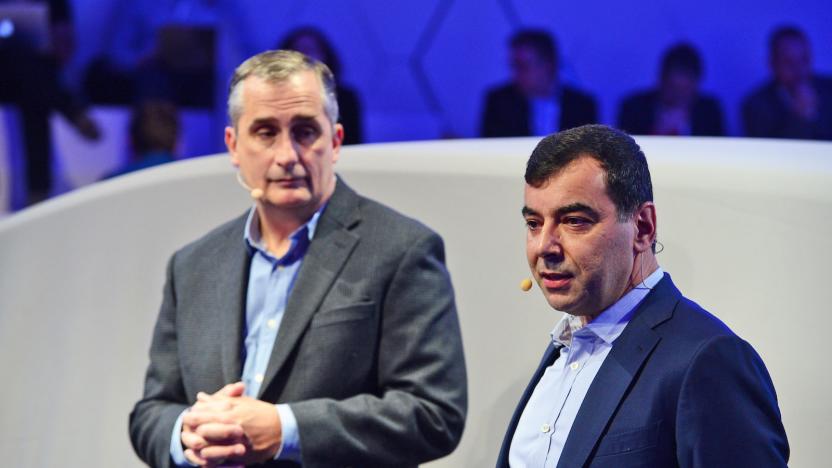
Intel’s acquisition of Mobileye is officially complete
In March, Intel announced the acquisition of Mobileye, a company it has partnered with to develop self-driving automobile technology. And as of today, the $15.3 billion deal is officially complete. Intel purchased 84 percent of Mobileye's outstanding ordinary shares and the company is now an Intel subsidiary.
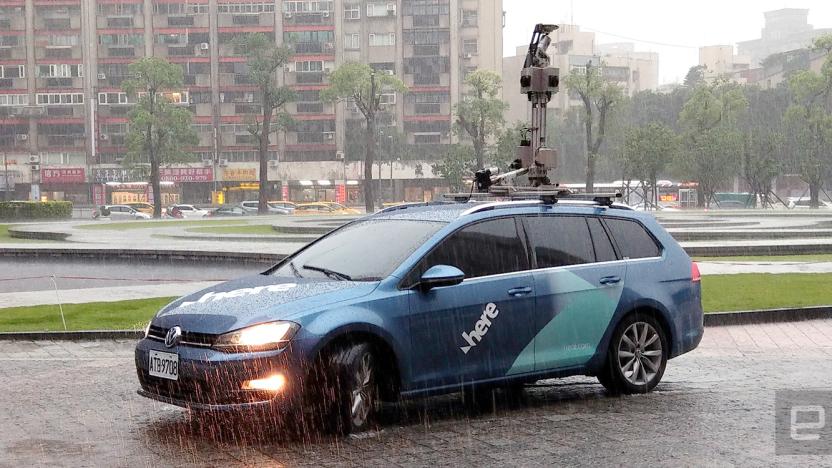
Here's updated mapping vehicle paves way for self-driving cars
It may have been a while since we last we came across a Here 3D mapping vehicle, but that's not to say the company hasn't been using its cars lately. In fact, the Here True collection vehicle is now in its third revision, and I got to hop on one -- based on a Volkswagen Golf Variant 280 TSI Highline -- during Computex. The ride features much faster D-GPS tracking that no longer requires a half-hour calibration (to reach an accuracy of under one meter), along with a Velodyne LiDAR with an accuracy of better than 2cm (within a range of up to 70 meters) and four 16.2-megapixel MARS panoramic cameras. This set of gear is almost identical to what we've seen before, so the real highlight this time is the updated backend to support high-definition mapping.
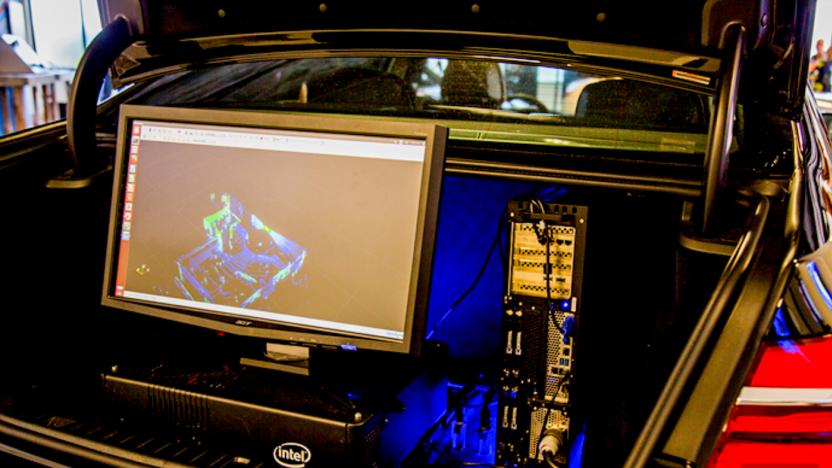
Intel positions itself as the heart of autonomous vehicles
Intel's computer chip manufacturing and marketing is amazing. It's hard to read the company's name without hearing those iconic four tones in your head. But outside of making silicon faster and shoving it in nearly every computer on the planet, the company has had a pretty shoddy record of diversifying its business. Just a cursory look back at history will reveal a trail of missed opportunities.
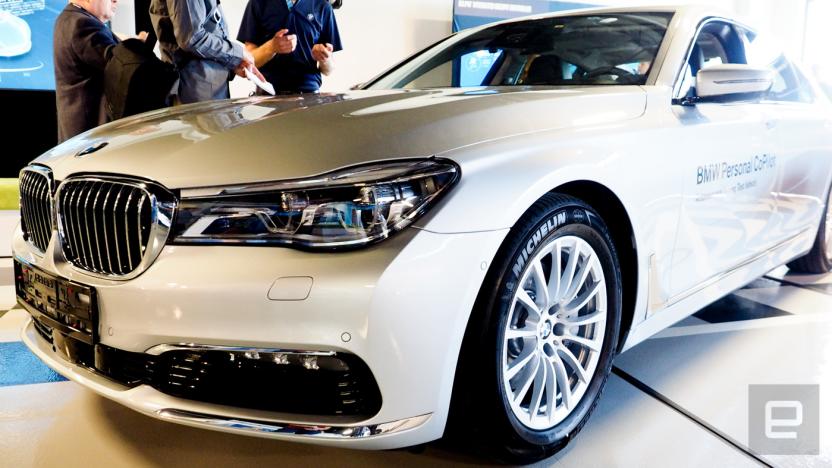
Intel and BMW's highly-automated cars hit the road
Intel is great at building chips for computers. Everything else, not so much. But the company that's been powering most of the computers on the market for decades is going full bore into autonomous cars. Today it announced the launch the first vehicle of its highly automated car test fleet with partner BMW. The vehicles will also include technology from Intel's latest acquisition, Mobileye.
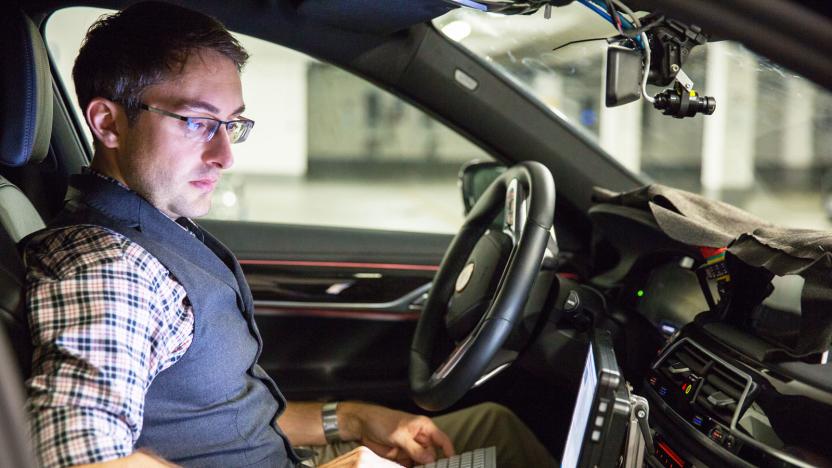
Intel buys self-driving tech firm MobilEye for $15.3 billion
Intel's recent work with MobilEye on self-driving cars must have gone well, because the chip giant is buying its Jerusalem-based partner for $15.3 billion. The deal was first reported by Israeli business site The Marker but has now been confirmed by the two companies. MobilEye is one of the largest players in autonomous vehicle tech and was in the news recently over a spat with Tesla following a fatal Model S crash in Florida. However, it recently teamed with Intel on BMW's iNext self-driving platform, which the automaker aims to put into service by 2021.










